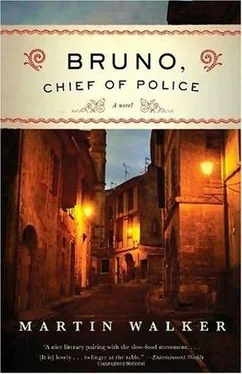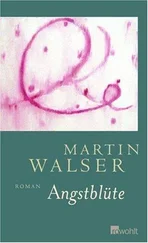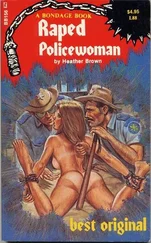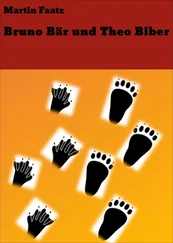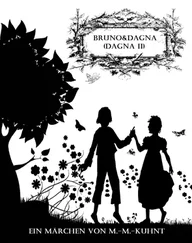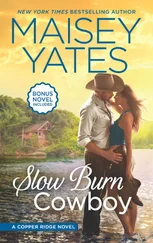Martin Walker - Bruno, chief of police
Здесь есть возможность читать онлайн «Martin Walker - Bruno, chief of police» весь текст электронной книги совершенно бесплатно (целиком полную версию без сокращений). В некоторых случаях можно слушать аудио, скачать через торрент в формате fb2 и присутствует краткое содержание. Жанр: Полицейский детектив, на английском языке. Описание произведения, (предисловие) а так же отзывы посетителей доступны на портале библиотеки ЛибКат.
- Название:Bruno, chief of police
- Автор:
- Жанр:
- Год:неизвестен
- ISBN:нет данных
- Рейтинг книги:3 / 5. Голосов: 1
-
Избранное:Добавить в избранное
- Отзывы:
-
Ваша оценка:
- 60
- 1
- 2
- 3
- 4
- 5
Bruno, chief of police: краткое содержание, описание и аннотация
Предлагаем к чтению аннотацию, описание, краткое содержание или предисловие (зависит от того, что написал сам автор книги «Bruno, chief of police»). Если вы не нашли необходимую информацию о книге — напишите в комментариях, мы постараемся отыскать её.
Bruno, chief of police — читать онлайн бесплатно полную книгу (весь текст) целиком
Ниже представлен текст книги, разбитый по страницам. Система сохранения места последней прочитанной страницы, позволяет с удобством читать онлайн бесплатно книгу «Bruno, chief of police», без необходимости каждый раз заново искать на чём Вы остановились. Поставьте закладку, и сможете в любой момент перейти на страницу, на которой закончили чтение.
Интервал:
Закладка:
‘The what?’
‘The political party for hunters and fishermen. That’s their name. Chasse, Pкche, Nature, Traditions. It’s like an alternative Green party for people who hate the real Greens as a bunch of city slicker Ecolos who don’t know the first thing about the countryside. They get about fifteen percent of the vote here – when they stand, that is. Don’t you have them in Normandy?’
Duroc shrugged. ‘I don’t know. I don’t pay much attention to politics. I never had to before.’
‘Grandpa voted for the Chasse party last time. He told me,’ Karim said. ‘He was a hunter and very strong on all that tradition stuff. You know he was a Harki?
Got a Croix de Guerre in Vietnam, before the Algerian war. That’s why he had to leave to come over here.’
Duroc looked blank.
‘The Harkis were the Algerians who fought for us in the Algerian war, in the French Army,’ Bruno explained. ‘When we pulled out of Algeria, the ones we left behind were hunted down and killed as traitors by the new government. Some of the Harkis got out and came to France. Chirac made a big speech about them a few years ago, how badly they’d been treated even though they fought for France. It was like a formal apology to the Harkis from the President of the Republic.’
‘Grandpa was there,’ Karim said proudly. ‘He was invited up to be in the parade for Chirac’s speech. They paid his way, gave him a rail ticket and hotel and everything. He wore his Croix de Guerre. Always kept it on the wall.’
‘A war hero. That’s just what we need,’ grunted Duroc. ‘The press will be all over this.’
‘Kept the medal on the wall?’ said Bruno. ‘I didn’t see it. Come and show me where.’
They went back into the room that looked like a slaughterhouse and was beginning to smell like one. The pompiers were clearing up their equipment and the room kept flaring with light as the gendarme took photos. Karim kept his eyes firmly away from his grandfather’s corpse and pointed to the wall by the side of the fireplace. There were two nails in the wall but nothing hanging on either one.
‘It’s gone.’ Karim shook his head. ‘That’s where he kept it. He said he was saving it to give to his first grandson. The medal’s gone. And the photo.’
‘What photo?’ Bruno asked.
‘His football team, the one he played in back when he was young, in Marseilles.’
‘When was this?’
‘I don’t know. Thirties or Forties, I suppose. He was in France then, as a young man.’
‘During the war?’
‘I don’t know,’ Karim shrugged. ‘He never talked much about his youth, except to say he’d played a lot of football.’
‘You said your grandpa was a hunter,’ Duroc said. ‘Did he have a gun?’
‘Not that I ever saw. He hadn’t hunted in years. Too old, he used to say. He still fished a lot, though. He was a good fisherman, and he and Momu used to go out early in the mornings before school.’
‘If there’s a gun, we’d better find it. Wait here,’ Duroc instructed, and left the room. Bruno got out his phone again and rang Mireille at the Mairie, and asked her to check whether a hunting or fishing licence had been issued to the old man. He checked the name with Karim. Al-Bakr, Hamid Mustafa al-Bakr.
‘Look under A for the al and B for the Bakr,’ Bruno said. ‘And if that doesn’t find him, try H for Hamid and M for Mustafa.’ He knew that filing was not Mireille’s strong point. A widow, whose great skill in life was to make a magnificent tкte de veau, the Mayor had taken her on as a clerk after her husband died young of a heart attack.
Duroc emerged from the house. ‘Now we wait for the detectives. They’ll probably take their own sweet time,’ he said glumly. The Gendarmerie had little affection for the detectives of the Police Nationale. The gendarmes were part of the Ministry of Defence, but the Police Nationale came under the Ministry of the Interior and there was constant feuding between them over who did what. Bruno, with his own chain of command to the Mayor, was pleased not to be part of it.
‘I’ll go and see the neighbours,’ said Bruno. ‘We have to find out if they heard or saw anything.’
CHAPTER 6
The nearest house was back towards the main road. It led to a gigantic cave, a source of great pride to the St Denis tourist office. Its stalagmites and stalactites had been artfully lit so that, with some imagination, the guides could convince tourists that this one was the Virgin Mary and that one was Charles de Gaulle. Bruno could never remember whether the stalactites grew up or down and thought they all looked like giant church organs, but he liked the place for the concerts, jazz and classical, that were held there in summer. And he relished the story that when the cave was first discovered, the intrepid explorer who was lowered in on a long rope found himself standing on a large heap of bones. They belonged to the victims of brigands who lay in wait to rob pilgrims who took this route from the shrines of Rocamadour and Cadouin to Compostela in distant Spain.
The house belonged to Yannick, the maintenance man for the cave, and his wife, who worked in the souvenir shop. They were away from home all day and their daughters were at the lycйe in Sarlat, so Bruno did not expect much when he rang the doorbell. Nobody came, so he went round to the back, hoping that Yannick might be working in his well-tended garden. The tomatoes, onions, beans and lettuces stood in orderly rows, protected from rabbits by a stockade of chicken wire. There was no sign of Yannick. Bruno drove back to the main road and on to the nearest neighbour, the mad Englishwoman. Her house was a low hill and a valley away from the old Arab’s cottage, but they used part of the same access road so she might have seen or heard something.
He slowed at the top of the rise and stopped to admire her property. Once an old farm, it boasted a small farmhouse, a couple of barns, stables and a pigeon tower, all built of honey-coloured local stone and arranged on three sides of a courtyard. There were two embracing wings of well-trimmed poplars set back from the house, sufficient to deflect the wind in winter but too far to cast a shade over the buildings or grounds. Ivy climbed up one side of the pigeon tower and a splendid burst of bright pink early roses covered the side by the old iron-studded door. In the middle of the courtyard stood a handsome old ash tree, and large terracotta pots filled with geraniums made splashes of colour against the gravel. Beside the largest barn was a vine-covered terrace with a long wooden table that looked a fine place to dine in summer. Off to its side was a vegetable garden, a greenhouse and a level area for parking. On the other side, behind a low fence covered in climbing roses, he saw the corner of a swimming pool.
From the top of the long gentle rise of the meadow, the property looked charming in the late afternoon sunlight, and Bruno drank in the sight. He had seen many a fine house and some handsome small chateaux in his many tours through his Commune, but he’d rarely seen a place that looked so completely at peace and welcoming. It came as a relief after the shock and horror of what he had found at Hamid’s cottage, as if the two places, barely a kilometre apart, could not exist in the same universe. He felt calmer and more himself for seeing it, and was reminded that he had a job to do.
He drove slowly up the gravel road, lined on each side with young fruit trees that would form a handsome avenue some day, and stopped in the parking area. The mad Englishwoman’s old blue Citroлn was parked alongside a new VW Golf convertible with English number plates. He settled his cap on his head, switched off his engine, and heard the familiar plop-plop of a tennis ball. He strolled around to the back of the farmhouse, past an open barn where two horses were chewing at hay, and saw an old grass tennis court that he had never known was there.
Читать дальшеИнтервал:
Закладка:
Похожие книги на «Bruno, chief of police»
Представляем Вашему вниманию похожие книги на «Bruno, chief of police» списком для выбора. Мы отобрали схожую по названию и смыслу литературу в надежде предоставить читателям больше вариантов отыскать новые, интересные, ещё непрочитанные произведения.
Обсуждение, отзывы о книге «Bruno, chief of police» и просто собственные мнения читателей. Оставьте ваши комментарии, напишите, что Вы думаете о произведении, его смысле или главных героях. Укажите что конкретно понравилось, а что нет, и почему Вы так считаете.
